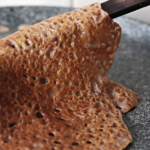Ragi, also known as finger millet, is an ancient grain that has been a staple in many cultures for centuries. This superfood is gaining popularity due to its impressive nutritional profile and numerous health benefits. In this blog, we will explore the nutritional values of ragi and why it is an excellent addition to a balanced diet.
Rich in Nutrients
Ragi is a powerhouse of essential nutrients, making it a valuable addition to any diet. Here are some of the key nutrients found in ragi:
1. Protein
Ragi is an excellent source of plant-based protein, which is essential for muscle repair, growth, and overall body function. A 100-gram serving of ragi provides approximately 7.3 grams of protein, making it an excellent protein source for vegetarians and vegans.
2. Dietary Fiber
Fiber is crucial for maintaining digestive health, and ragi is rich in dietary fiber. It aids in digestion, prevents constipation, and helps maintain a healthy gut. A high-fiber diet is also linked to lower risks of heart disease, diabetes, and certain types of cancer.
3. Calcium
Ragi is renowned for its high calcium content, which is vital for bone health. It contains more calcium than any other cereal, with 100 grams of ragi providing around 344 milligrams of calcium. This makes ragi an excellent dietary choice for individuals looking to strengthen their bones and teeth.
4. Iron
Iron is essential for the production of hemoglobin, which carries oxygen in the blood. Ragi is a good source of iron, making it beneficial for individuals with anemia or those looking to boost their iron intake. A 100-gram serving of ragi provides approximately 3.9 milligrams of iron.
5. Antioxidants
Ragi is rich in antioxidants, which help combat oxidative stress and reduce inflammation in the body. These antioxidants, including phenolic compounds, help protect the body against chronic diseases and support overall health.
6. Vitamins
Ragi contains several essential vitamins, including B vitamins like niacin (B3), thiamine (B1), and riboflavin (B2). These vitamins are crucial for energy production, brain function, and maintaining healthy skin and eyes.
7. Amino Acids
Ragi is a good source of essential amino acids such as methionine, valine, isoleucine, and tryptophan. These amino acids play a vital role in various bodily functions, including protein synthesis, tissue repair, and nutrient absorption.
Health Benefits of Ragi
Incorporating ragi into your diet can offer numerous health benefits:
1. Weight Management
The high fiber content in ragi helps promote a feeling of fullness, which can reduce overall calorie intake and aid in weight management. Additionally, ragi has a low glycemic index, which means it releases sugar slowly into the bloodstream, preventing sudden spikes in blood sugar levels.
2. Bone Health
The rich calcium content in ragi makes it an excellent choice for maintaining strong bones and preventing osteoporosis, especially in children, women, and the elderly.
3. Diabetes Management
Ragi’s low glycemic index makes it a suitable food for individuals with diabetes. It helps regulate blood sugar levels and prevents sudden spikes, making it an excellent option for managing diabetes.
4. Heart Health
The high fiber and antioxidant content in ragi contribute to heart health by reducing cholesterol levels and preventing the oxidation of fats, which can lead to atherosclerosis and other cardiovascular diseases.
5. Digestive Health
The dietary fiber in ragi aids in digestion and promotes a healthy gut by preventing constipation and promoting regular bowel movements.
How to Incorporate Ragi into Your Diet
Ragi can be incorporated into your diet in various ways:
- Ragi Flour: Use ragi flour to make rotis, dosas, pancakes, and porridge.
- Ragi Malt: Prepare a nutritious drink by mixing ragi flour with water or milk and adding a sweetener.
- Ragi Cookies and Snacks: Bake ragi cookies or use ragi flour in snack recipes for a healthy treat.
Conclusion
Ragi is a nutrient-dense superfood that offers numerous health benefits, from improved bone health to better diabetes management. Its rich nutritional profile makes it an excellent addition to a balanced diet. By incorporating ragi into your meals, you can enjoy its health benefits and contribute to your overall well-being. Explore the versatility of ragi and embrace this ancient grain for a healthier you.




